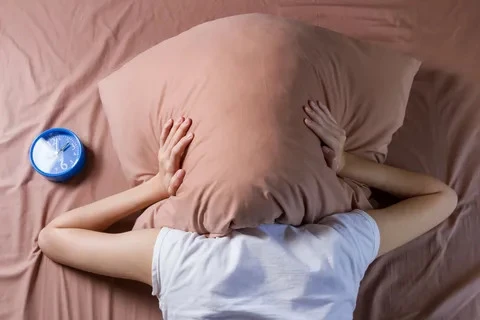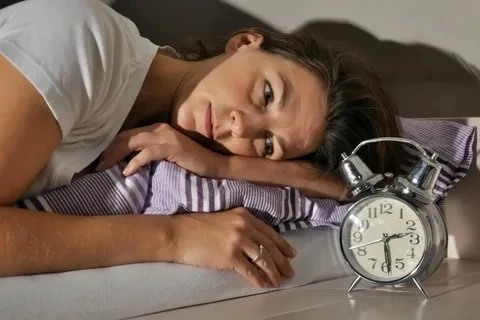Overview
Anxiety and insomnia frequently coexist, resulting in a vicious cycle that can seriously lower someone\'s quality of life. The interaction of these two disorders may result in ongoing sleep disturbances, exhaustion during the day, elevated stress levels, and compromised cognitive abilities. We will examine the connection between anxiety and insomnia, investigate their underlying causes, and go over practical methods for handling sleep disturbances with specific insomnia remedies in this extensive book.
Knowing About Sleep Disorders and Anxiety
The Thief of Sleep: Insomnia
A sleep disorder called insomnia is typified by trouble getting to sleep, remaining asleep, or having non-restorative sleep even when given enough opportunity to do so. It may be chronic, continuing for months or even years, or acute, lasting only a short while. Insomnia is caused by a variety of reasons, such as stress, anxiety, depression, underlying medical disorders, environmental factors, and lifestyle choices.
Anxiety: The Chaos of the Mind
Excessive concern, fear, or trepidation about circumstances or events in the future characterize anxiety disorders. These feelings are frequently accompanied by physical symptoms including restlessness, tenseness in the muscles, irritability, and trouble focusing. Common forms of anxiety disorders include panic disorder, social anxiety disorder, generalized anxiety disorder (GAD), and phobias.
The Mutual Association Between Anxiety and Insomnia
Insomnia Is Fueled by Anxiety
Anxiety can be a powerful inducer of insomnia, causing racing thoughts, hyperarousal, and trouble falling asleep. Anxious people may suffer from anticipatory anxiety, which makes them worry about not being able to fall or remain asleep, therefore making their sleep problems worse.
Sleeplessness Increasing Anxiety
On the other hand, persistent insomnia can make anxiety symptoms worse, leading to a vicious cycle of increased stress and insomnia. Lack of sleep has an adverse influence on mood regulation, heightens emotional reactivity, and impairs cognitive performance, making it difficult to successfully manage everyday stressors and anxiety triggers.
Handling Sleeplessness and Nervousness: Combinatorial Methods
For insomnia, cognitive-behavioral therapy (CBT-I)
The gold standard for treating insomnia is cognitive behavioral therapy (CBT-I), which targets maladaptive behaviors, unfavorable sleep beliefs, and disordered sleep patterns. The approach integrates cognitive restructuring, relaxation methods, sleep hygiene teaching, and stimuli management tactics to enhance both the quantity and quality of sleep.
Stress Reduction Through Mindfulness (MBSR)
In order to lower stress, develop present-moment awareness, and improve self-regulation abilities, MBSR combines body awareness, yoga, and mindfulness meditation. Sleep problems caused by anxiety can be lessened and relaxation can be enhanced by MBSR, which teaches people to observe and accept thoughts and emotions without passing judgment.
The progressive relaxation of muscles (PMR)
In order to promote deep relaxation and release physical tension, PMR entails methodically tensing and relaxing muscle groups. Frequent use of PMR before bed can help lower anxiety levels, encourage muscular relaxation, and get the body ready for sound sleep.
Insomnia Treatment Through Hypnosis
Through the subconscious mind, hypnosis can resolve underlying worries, encourage relaxation, and change unfavorable views about sleep. It might be a useful addition to conventional insomnia therapies, assisting people in ending cycles of worry and insomnia and creating healthy sleep associations.
Changes in Lifestyle
Anxiety levels can be controlled and sleep quality greatly enhanced by implementing healthy sleep habits and lifestyle changes. This include sticking to a regular sleep schedule, establishing a calming bedtime ritual, improving the sleep environment (e.g., by lowering noise levels and managing lighting), consuming less caffeine and alcohol, and engaging in regular exercise.
Expert Advice and Assistance
Advising Medical Professionals
It is imperative to visit healthcare practitioners such as primary care physicians, sleep specialists, or mental health professionals if anxiety and insomnia have a substantial influence on one\'s quality of life and ability to operate on a daily basis. They are able to identify underlying causes, suggest suitable courses of action, and offer individualized advice.
Approach to Collaborative Treatment
Combining several therapy modalities—like behavioral interventions and pharmaceutical management for anxiety (benzodiazepines, selective serotonin reuptake inhibitors, etc.)—ensures a thorough strategy for treating the co-occurring conditions of insomnia and anxiety.
Self-Care Routines for Improved Mental and Sleep Quality
Techniques for Stress Management
Take part in stress-relieving activities including progressive muscle relaxation, yoga, mindfulness meditation, deep breathing techniques, and enjoyable hobbies.
Developing Restful Sleeping Routines
Make sleep a priority by sticking to a regular sleep schedule, setting up a cozy sleeping space, avoiding stimulants just before bed, setting a screen time restriction, and concluding the evening with relaxing activities.
Looking for Social Assistance
Make connections with loved ones, friends, support groups, or mental health specialists to receive emotional support, comprehension, and direction in managing sleeplessness and anxiety issues.
In summary
It can be quite difficult to get deep, restorative sleep and keep up ideal mental health when dealing with insomnia and worry. People are more able to adopt integrated approaches that incorporate evidence-based therapies for insomnia, stress management techniques, lifestyle modifications, and professional support when necessary when they recognize the reciprocal relationship between these diseases.
Through treating the psychological and physiological components of anxiety and sleep disturbances, people can reclaim control over their sleep cycles, lessen the symptoms of worry, and enhance their general well-being. To effectively manage sleeplessness and anxiety for a happier, more balanced existence, keep in mind that seeking timely intervention, engaging in self-care, and creating a supportive environment are essential first steps.
People can liberate themselves from the clutches of worry and sleep problems by combining focused insomnia treatments into a comprehensive approach to mental wellbeing. This will pave the way for peaceful evenings and happier days ahead. Treating insomnia involves more than just getting enough sleep; it also entails regaining resilience, energy, and mental clarity.



